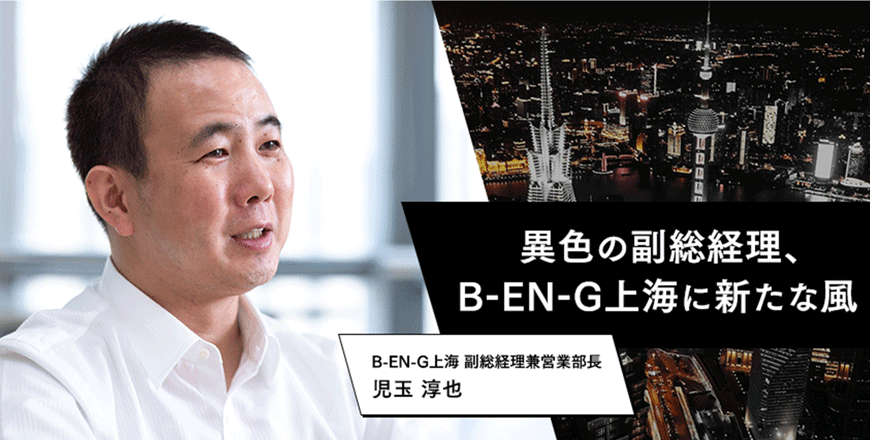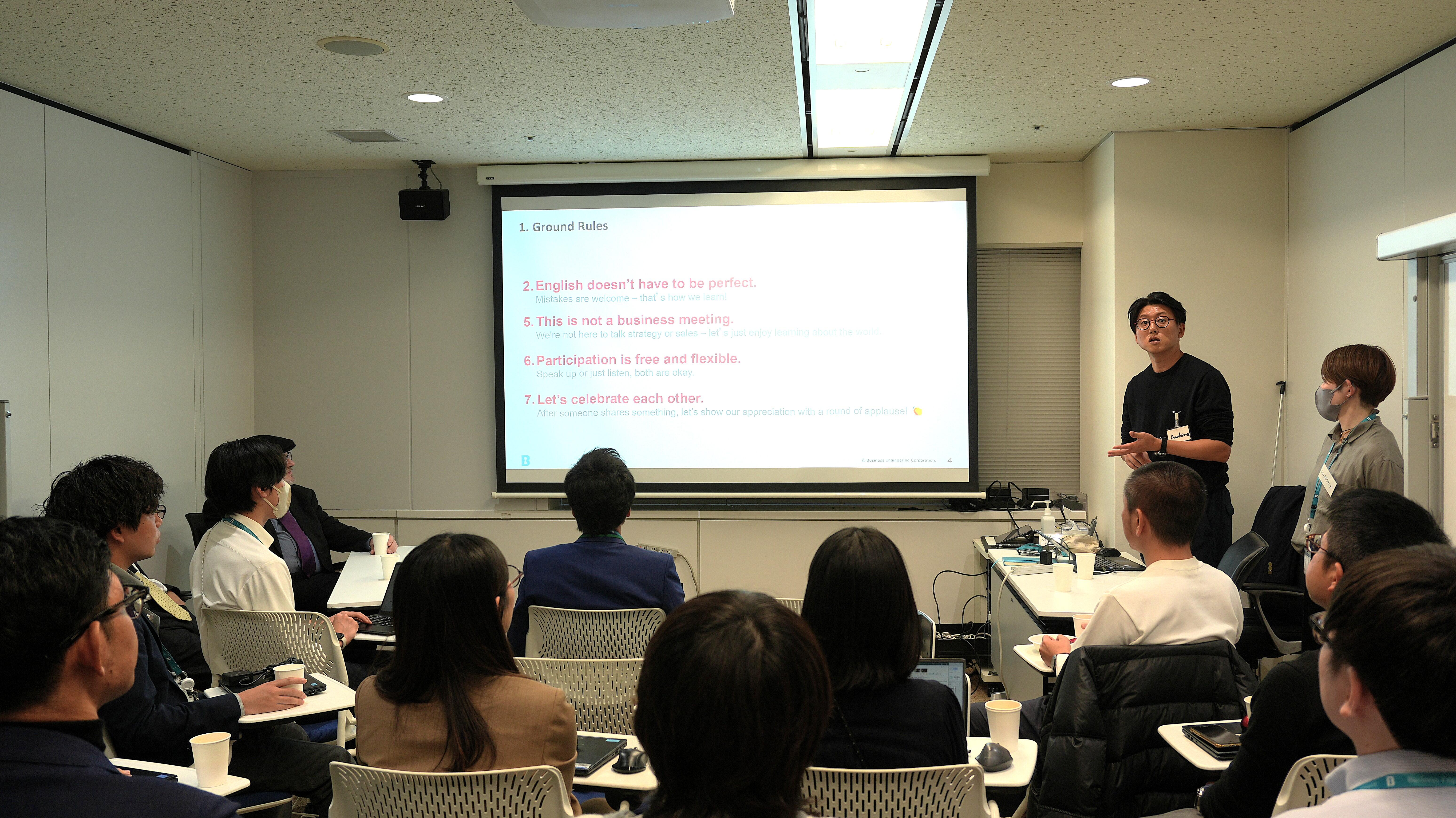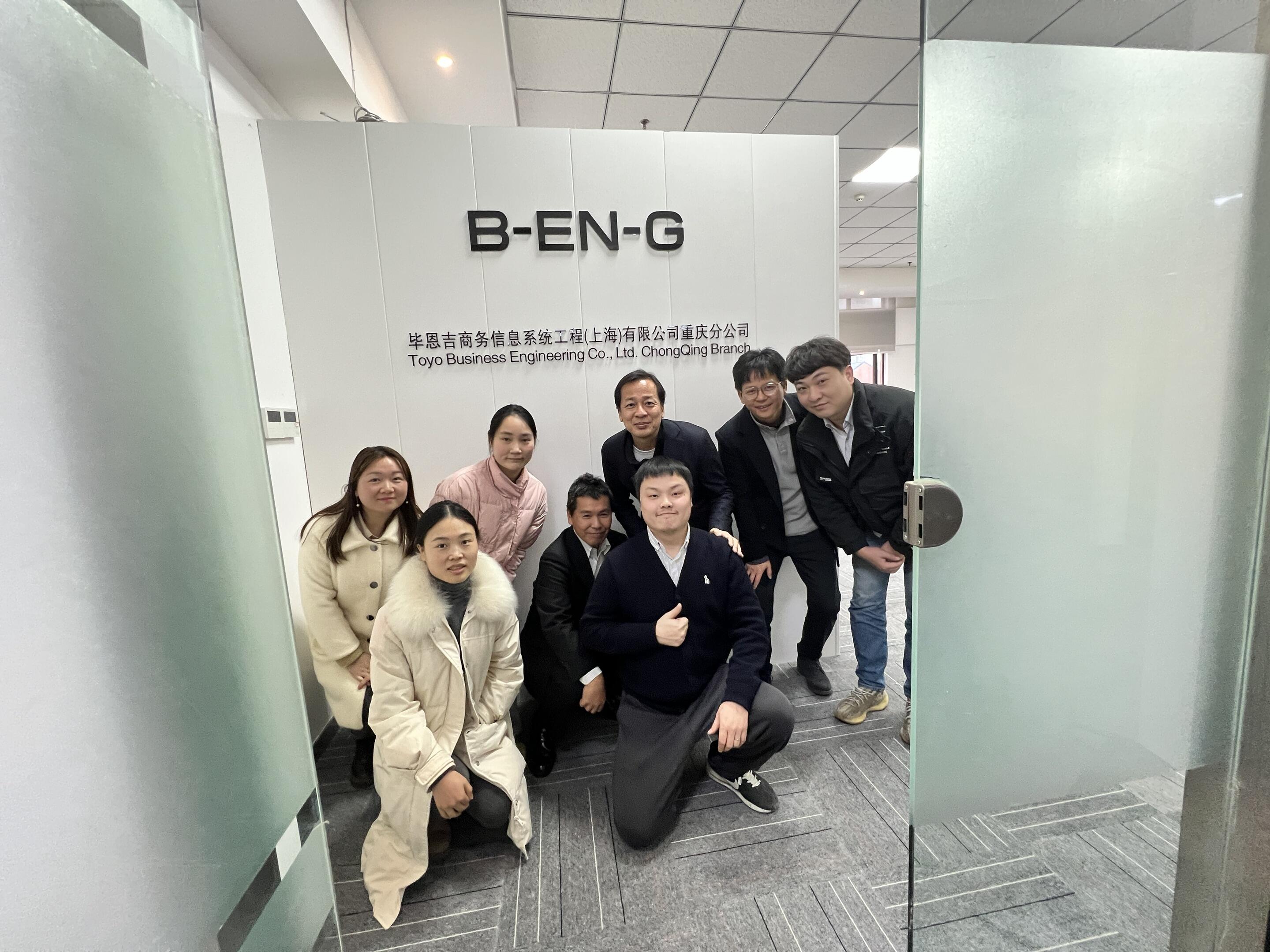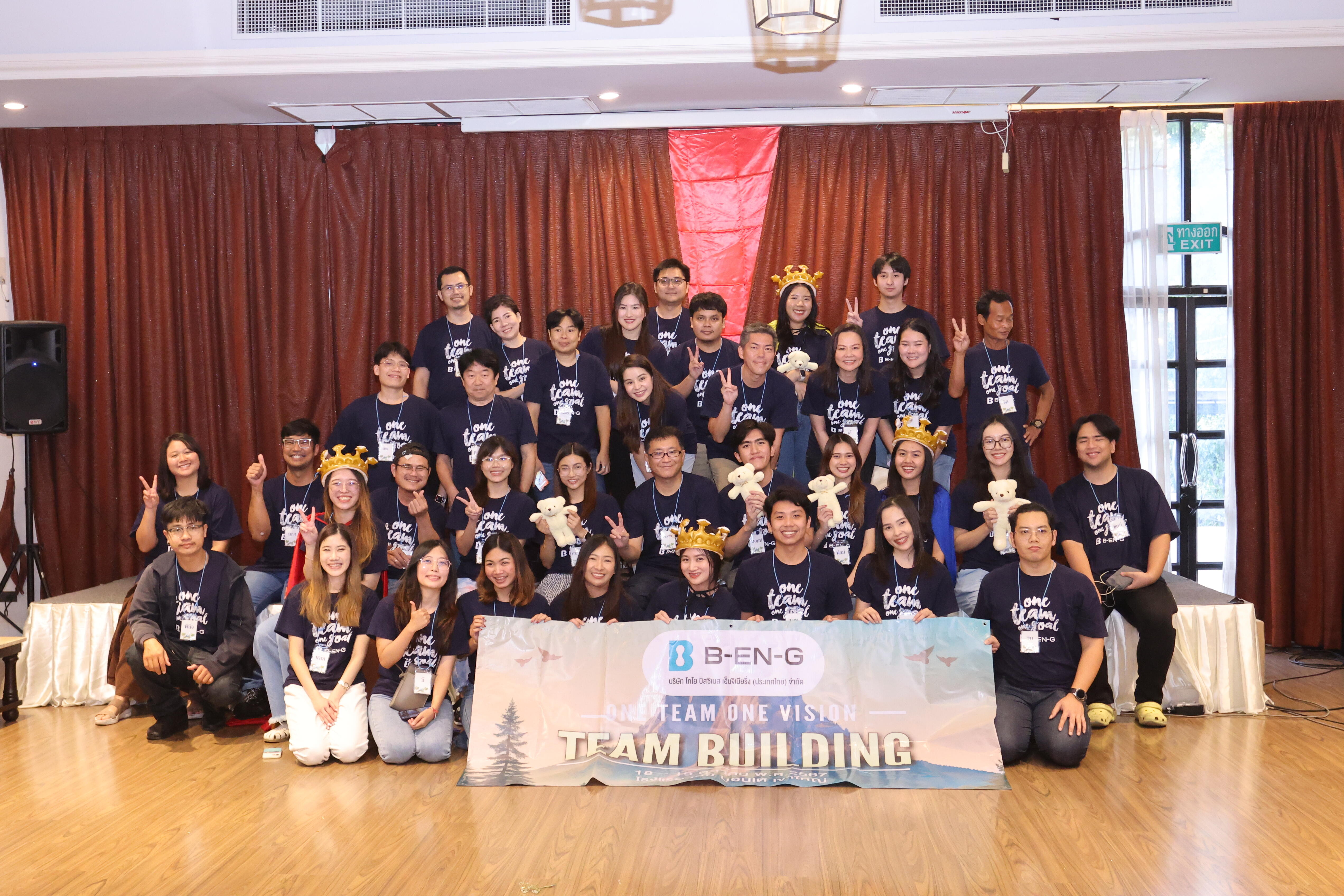In March 2018, B-EN-G Shanghai appointed its first vice president, who is not an engineer or consultant, but comes from the sales field. His name is Junya Kodama, who also serves as the head of the sales department. As China accelerates the digitalization of manufacturing sites, what should a non-engineer like him do? Kodama talks about the new strategy that can only be achieved from a sales perspective.
In Shanghai for the first time in 15 years
Kodama joined B-EN-G in November 2006. He frequently visited Shanghai on business trips for his previous job at a logistics company affiliated with a manufacturer. This was in the early 2000s, shortly before the excitement of the 2008 Shanghai World Expo and the 2010 Beijing Olympics. There were not many subways in the area, and major roads were severely congested during the morning and evening rush hours.
More than 15 years have passed since then.
"To be honest, I had had enough of China, but when I visited again, I was pleasantly surprised."
Back then, it took me two hours to drive to work, but now the warehouse district is served by a subway. From visible changes such as the transportation infrastructure and skyscrapers lining the streets, the changes in services such as the progress of cashless transactions, which far surpasses those in Japan, and the variety of smartphone apps, are also remarkable.
The night view of Shanghai, with its forest of skyscrapers. "Before, the only thing there was the Oriental Pearl Television Tower," Kodama said in surprise.
"I feel that the sense of speed is completely different from the past 15 years in mature Japan. Since coming here, I have not withdrawn cash from an ATM even once. My life is entirely based on my smartphone. Prices have risen and many goods and services are cheaper in Japan, so I can understand why Chinese visitors to Japan have been going on shopping sprees."
In China, cashless payment has become widespread even at food stalls.
In Japan, there are many reports that the Chinese economy is worsening due to the trade friction between the United States and China. However, Kodama is not pessimistic, saying, "Even so, China is maintaining a growth rate far higher than Japan. Coming here makes me realize once again the power of this huge market of 1.3 billion."
What can I do as a sales professional?
Kodama has worked for many years in sales of ERP (enterprise resource planning) packages such as SAP and Oracle, as well as trade and logistics solutions at the head office. This is the first time that someone with a sales background has been assigned to all of B-EN-G's overseas locations, including Shanghai.
"The reason why someone with a sales background like me was able to take up the post of deputy general manager is because the Shanghai subsidiary is led by General Manager Sun, who has maintained stable management for the past 10 years. I am the only Japanese person, but with Gu, Yuan, and Xu at the helm, we have a system in place that allows us to carry out system implementation projects with only Chinese staff."
Although Kodama does not have experience in development, he excels at building and coordinating relationships with in-house developers and consultants, as well as with client companies and partner companies, thanks to his strong communication skills. In the fall of 2019, with the cooperation of three partner companies, the Shanghai corporation exhibited at a large-scale exhibition for the first time.
Exhibition booth in Shanghai 
"Until now, we have received orders from the headquarters in Japan, and we have been able to make a certain amount of sales just by completing those orders, but from now on, we would like to increase the number of inquiries that we receive specifically from China. Participating in exhibitions is part of that, and we would also like to strengthen our digital marketing and other areas."
"There are no Japanese people"
This idea was born out of the sense of crisis he felt when he was assigned to Shanghai.
"While visiting several client companies, I noticed something. There were no Japanese people there. In the past, if I went to a Japanese company, a Japanese person would accompany me, but now meetings are completed by Chinese people alone. There are no Japanese people there to begin with. Nowadays, even Japanese companies are increasingly localizing their department and section managers."
B-EN-G's strength is that Chinese consultants who are familiar with Japanese business and can speak Japanese support the introduction of Japanese-style systems. However, Kodama is concerned about the future, saying, "If we continue like this, the day will come when we will no longer be able to maintain our competitiveness."
"On the other hand, it can also be said that there is no longer any need to stick to Japanese companies. If we can complete the business with Chinese people alone, I thought it would be better to target local companies as well as Western companies."
Kodama, who was posted to the Czech Republic for about a year in his previous job, has no qualms about dealing with Western companies. In the future, he is considering expanding sales channels not only to Japanese companies but also to Chinese and Western companies.
Another Face
Kodama has another role as a consultant for small and medium-sized enterprises. In addition to his regular duties in Japan, he used his qualifications to support small and medium-sized manufacturing companies, such as assisting with subsidy applications.
"In the face of a labor shortage, many small and medium-sized manufacturing companies in Japan have been downsizing and automating the workforce. Just like in Japan, China is also facing a declining birthrate and aging population, and I feel that sooner or later there will be a limit to labor-intensive industries," Kodama says, comparing the state of Japanese small and medium-sized enterprises he has seen to the state of Chinese manufacturing.
He also works as a small and medium-sized business consultant in Japan.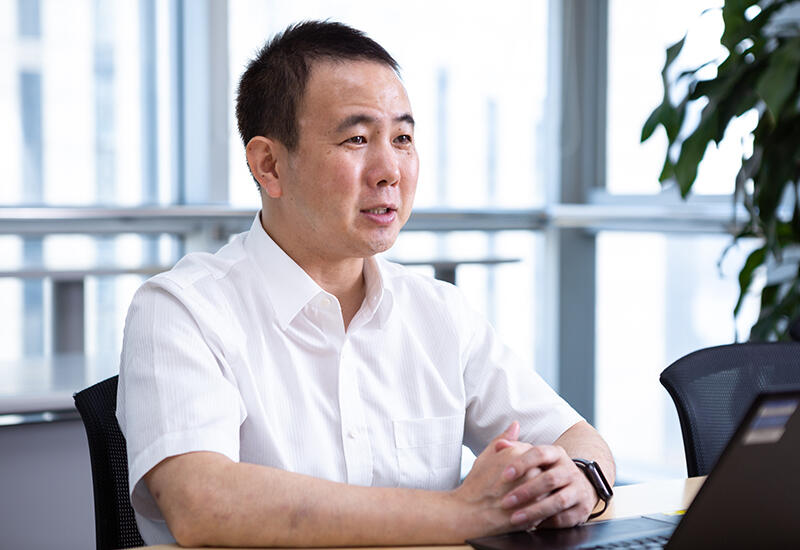
"Even in China, which was once known as the 'world's factory,' the day may come when factories will be run by seniors and foreign workers. When that time comes, we will help create workplaces where everyone can work comfortably with our solutions."
B-EN-G has introduced several IoT solutions, including"mcframe SIGNAL CHAIN", which visualizes the operating status of factory equipment from signal lights,"Biz board", a BI dashboard that converts various data into information, and"mcframe MOTION", a work guidance and evaluation tool that uses motion sensors.
In 2015, the Chinese government announced a policy to advance the manufacturing industry called "Made in China 2025." It is encouraging the promotion of automation, digitalization, and smart manufacturing at production sites. Recently, the trade friction between the United States and China has made the risks of import dependency apparent. The momentum for strengthening China's domestic manufacturing industry is increasing, which is a tailwind for IoT-related products.
"In Japan, I helped companies allocate subsidies to capital investment in the manufacturing industry, but in China, I want to take advantage of government policies to propose our own solutions. Also, B-EN-G Shanghai is a small- or medium-sized company. From the perspective of a small- or medium-sized enterprise management consultant, I will work to strengthen the organization, including its personnel system, finances, and on-site operations."
A small and medium-sized business consultant with a background in sales, the vice general manager with a unique background is bringing a breath of fresh air to B-EN-G Shanghai.
(Reporting cooperation: NNA / Supervision: Kyodo News Digital)
*This interview is current as of September 2019.
